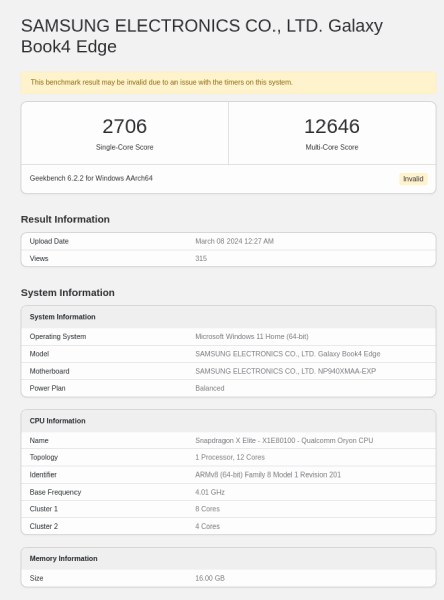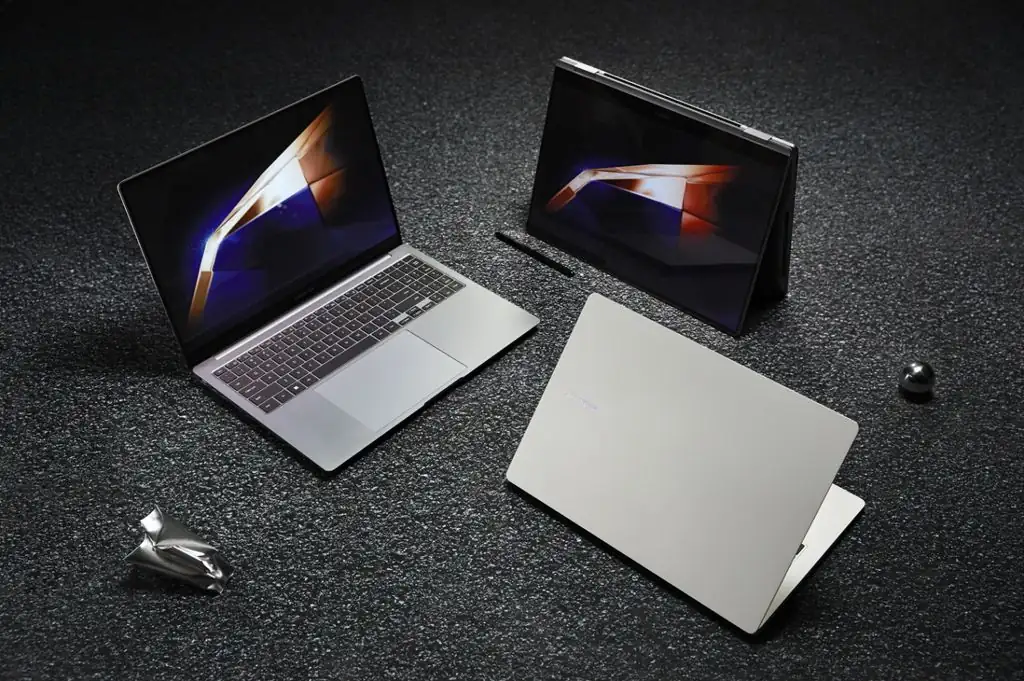Samsung recently introduced its Galaxy Book 4 series globally, but there seems to be another exciting reveal on the horizon. A mysterious newcomer, the Samsung Galaxy Book 4 Edge, has popped up on the Geekbench benchmarking platform, offering some exciting details about the upcoming device.
Samsung Galaxy Book 4 Edge Geekbench benchmark
Surprisingly, the Galaxy Book 4 Edge packs Qualcomm’s new Snapdragon X Elite processor paired with 16GB of RAM and runs Windows 11 Home (64-bit).
The benchmark not only confirms that Samsung will be partnering with Qualcomm on laptops but also indicates that the company may not yet be ready to deploy its own Exynos chips for larger devices. It is likely a wise move, given Samsung’s current focus on refining the Exynos line for smartphones.
The Galaxy Book 4 Edge with Snapdragon X Elite achieved impressive Geekbench 6.2.2. scores: 2,706 points in single-core and a whopping 12,646 points in multi-core tests.

While these figures of the Snapdragon X Elite clearly outperform Apple’s M1 and M2 chips, it falls short against the newer M3 (excluding the M Pro line).
| Chip | Single-core | Multi-core |
|---|---|---|
| Apple M1 | 2334 | 8316 |
| Apple M2 | 2589 | 9742 |
| Apple M3 | 3181 | 15620 |
| Book4 Edge (X Elite) | 2706 | 12646 |
However, making a direct comparison between the Snapdragon X Elite and Apple’s M-series chips is a bit tricky in itself. The inherent differences between Windows 11 on ARM and MacOS make it difficult to gauge real-world performance solely based on benchmarks.

Apple’s excellent software optimization for its M-chips gives it an edge over any other PC device. So it remains to be seen if Qualcomm and Microsoft can achieve similar synergy.
Rumors also hint that Qualcomm’s new chip will find its way into Microsoft’s upcoming Surface Laptop 6 and Surface Pro 10. This would position Samsung as a direct competitor to Microsoft’s established Surface line.
Nevertheless, it’s surprising to see Samsung placing trust in Qualcomm for a new addition to its premium laptop lineup, particularly considering Qualcomm’s relatively recent entry into the consumer PC chip market.
Related:
- Samsung Galaxy A72 finally starts receiving One UI 6 (Android 14) update
- Samsung Galaxy Tab S6 Lite 2024 LTE & WiFi only variants surface on TDRA
- Samsung Galaxy A55, A35 pricing revealed in Europe
- Get the Realme GT5 Pro phone on Giztop for $599
- Get $100 OFF on Xiaomi 14 Pro at Giztop (1TB Variant)
- How to turn off any Samsung phone without using screen (5 methods)







